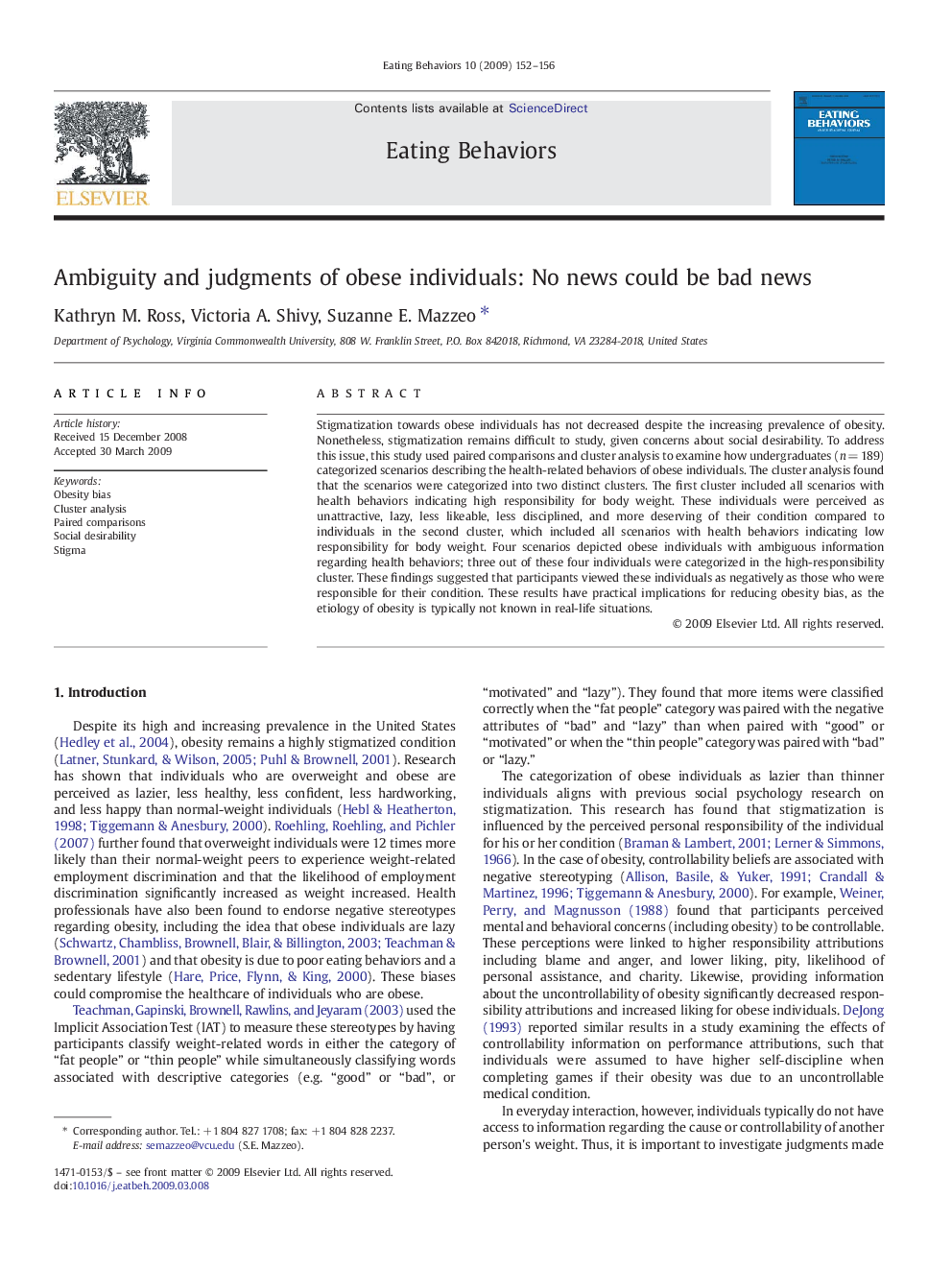| Article ID | Journal | Published Year | Pages | File Type |
|---|---|---|---|---|
| 10446891 | Eating Behaviors | 2009 | 5 Pages |
Abstract
Stigmatization towards obese individuals has not decreased despite the increasing prevalence of obesity. Nonetheless, stigmatization remains difficult to study, given concerns about social desirability. To address this issue, this study used paired comparisons and cluster analysis to examine how undergraduates (n = 189) categorized scenarios describing the health-related behaviors of obese individuals. The cluster analysis found that the scenarios were categorized into two distinct clusters. The first cluster included all scenarios with health behaviors indicating high responsibility for body weight. These individuals were perceived as unattractive, lazy, less likeable, less disciplined, and more deserving of their condition compared to individuals in the second cluster, which included all scenarios with health behaviors indicating low responsibility for body weight. Four scenarios depicted obese individuals with ambiguous information regarding health behaviors; three out of these four individuals were categorized in the high-responsibility cluster. These findings suggested that participants viewed these individuals as negatively as those who were responsible for their condition. These results have practical implications for reducing obesity bias, as the etiology of obesity is typically not known in real-life situations.
Related Topics
Life Sciences
Neuroscience
Behavioral Neuroscience
Authors
Kathryn M. Ross, Victoria A. Shivy, Suzanne E. Mazzeo,
